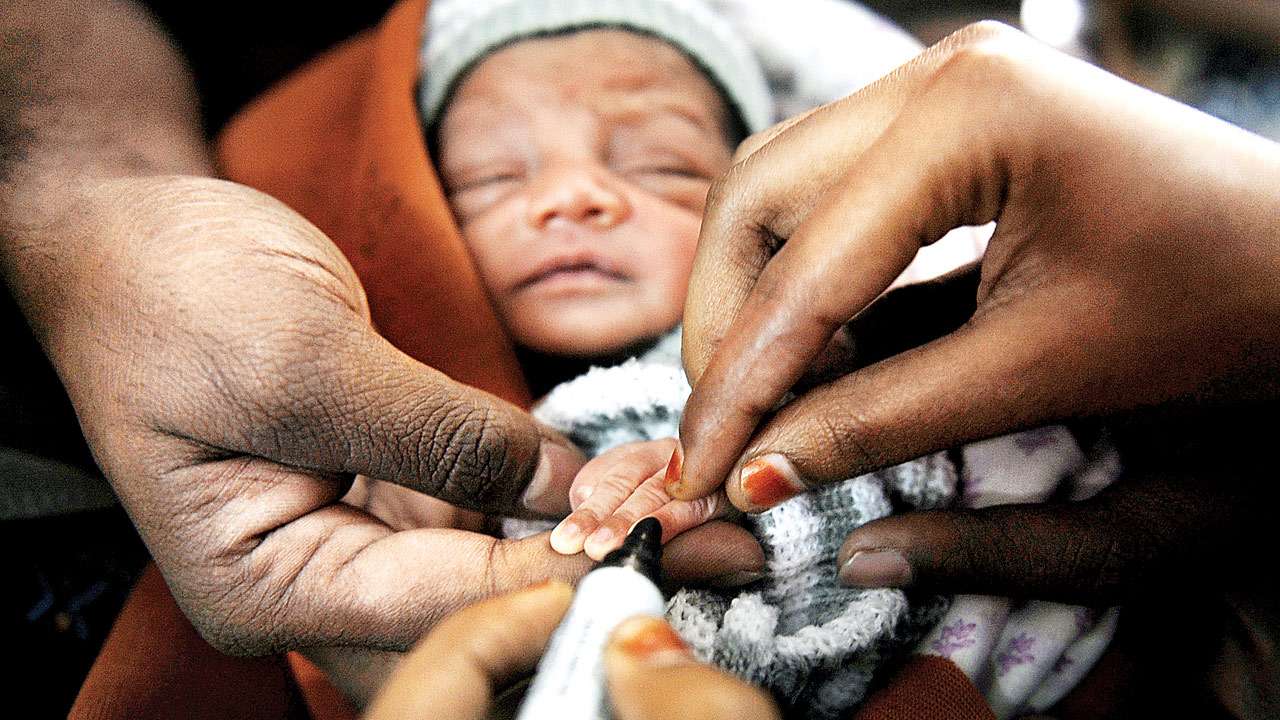
With population growth, climate change, new infectious diseases, antibiotic resistance and several new threats emerging each day, the need for new vaccines is urgent.
Significant progress has been made in the last one decade, as more infants in India today receive all basic vaccinations, as compared to a decade ago.
It is also a sign of improved social indicators like educated mothers, increased enrolment in schools and much better access to healthcare facilities.
In 2015-16, 62 per cent of Indian children (6 of 10) aged 12-23 months received basic vaccinations, up from 44 per cent a decade ago in 2005-06, according to National Health Survey data.
Interventions such as timely treatment in the case of diarrhoea, vaccinations for tetanus and measles and an increase in hospital births have also enabled this improvement.
Advancing the commitment to protect children against vaccine-preventable diseases, the Ministry of Health and Family Welfare, Government of India, launched the ambitious Measles-Rubella (MR) vaccination campaign in February 2017.
It is the largest immunisation campaign in the world that aims to cover 40 crore children in the age group of nine months to less than 15 years.
As of December 2018, under this campaign, more than 20 crore children across India have been administered this vaccine.
It reflects on the dedication of thousands of frontline health workers, school teachers, principals, government officers and above all parents, that no child should suffer from any vaccine-preventable diseases.
These accelerated efforts are being made towards reducing under-five child mortality and birth defects such as irreversible deafness and blindness.
In Delhi, the campaign will be introduced in January 2019 with an aim to cover nearly 55 lakh children across its eleven districts.
The five-week immunisation campaign in the national capital will have nearly 30,000 vaccination sessions. In the first phase, children from 5,400 big schools will receive these life-saving vaccines followed by 4,300 other small and informal schools.
Children receiving the vaccine will get a certificate and an ink mark on their nail to avoid any repeat.
Religious and cultural beliefs do play a role in influencing parents’ decision to get their children immunised. However, many parents remain unaware about the gains of vaccines.
While not actively rejecting them, they simply don’t know enough to seek them out. When children are not vaccinated fully and on time, the entire community’s health is at risk.
In a country of 1.2 billion people with varying social and economic realities, prevention is always better than the occurrence of disease.
Undergoing treatment poses a financial burden and out of pocket expenditure for the family.
Vaccine-preventable diseases such as pneumonia, diarrhoea and measles are significant contributors to child morbidity and mortality in our country.
The risk is not just child death, but also that children who do survive these diseases, are risking long-term hazards like deafness, seizures, motor impairment, cognitive impacts and stunting.
They also miss out on learning and development, while they are ill. It is a well-known fact that vaccine-preventable diseases cause serious illness and can be fatal. The advantage of existing immunisation programme should be availed to safeguard the health of our children from vaccine-preventable diseases.
All vaccines used under the Universal Immunisation Programme (UIP) are safe and effective. They undergo rigorous testing and trials before they are licensed for use in the country. The technical body, CDSCO, under the aegis of the Ministry of Health and Family Welfare, deliberate on the vaccine’s safety and efficacy, among other key considerations.
Surveillance for Measles and Rubella has also been strengthened, which is vital to the success of the campaign just like the polio eradication programme. The success of this campaign will set the precedence for other public health programmes.
Economic and social dividends awarded by vaccination are substantial — particularly when one considers that vaccines are able to reach the poorest and most vulnerable who are disproportionately impacted by the tragic consequences of severe diseases.
The country is putting its best efforts to meet the goal of elimination of measles and control of CRS by 2020.
This is a goal worth striving for.
Author is with Safdarjung Hospital, Delhi